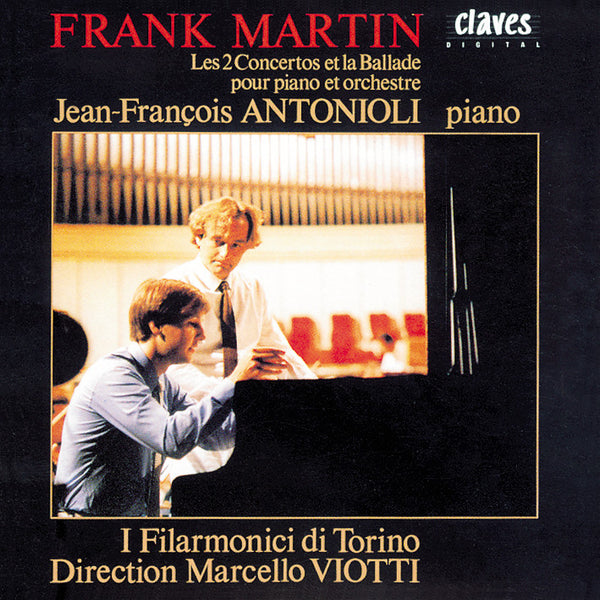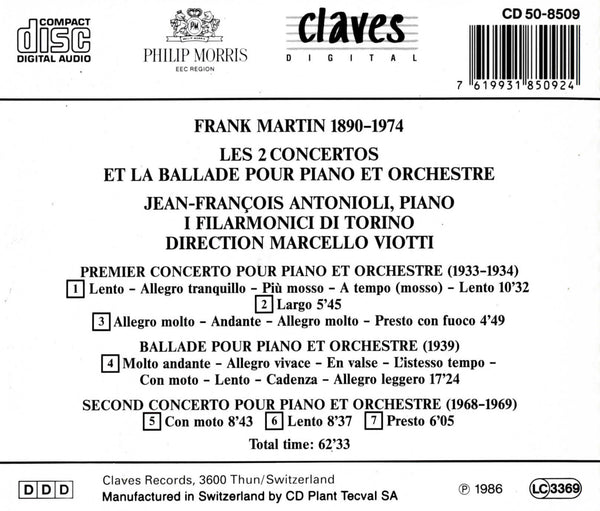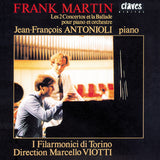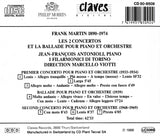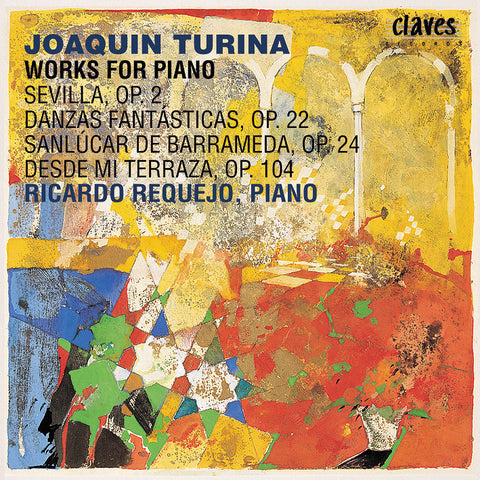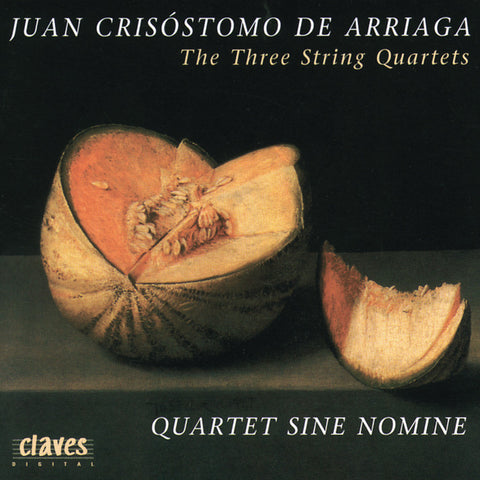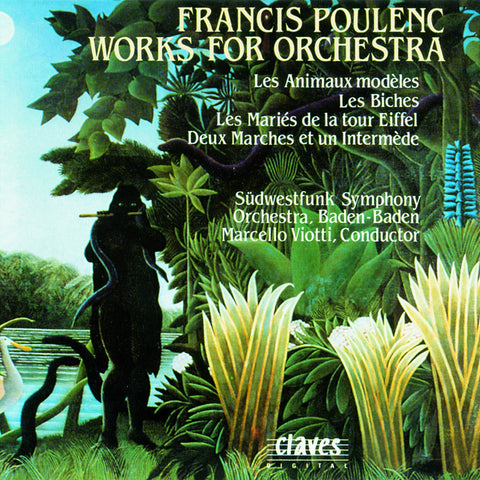(1986) Martin: Complete Works for Piano & Orchestra
Category(ies): Concerto Piano Rarities
Instrument(s): Piano
Main Composer: Frank Martin
CD set: 1
Catalog N°:
CD 8509
Release: 1986
EAN/UPC: 7619931850924
- UPC: 829410478663
This album is now on repressing. Pre-order it at a special price now.
CHF 18.50
This album is no longer available on CD.
This album has not been released yet. Pre-order it from now.
CHF 18.50
This album is no longer available on CD.
This album is no longer available on CD.
VAT included for Switzerland & UE
Free shipping
This album is now on repressing. Pre-order it at a special price now.
CHF 18.50
This album is no longer available on CD.
This album has not been released yet.
Pre-order it at a special price now.
CHF 18.50
This album is no longer available on CD.
This album is no longer available on CD.
MARTIN: COMPLETE WORKS FOR PIANO & ORCHESTRA
Frank Martin was born in Geneva (Switzerland) in 1890. When he was twelve, he heard a performance of the St Matthew Passion. The emotion he felt was decisive and left its mark throughout the composer's life, for whom Bach remained the true master. After the classical gymnasium, he studied mathematics and physics for two years at the University of Geneva, working at the same time on composition and piano with Joseph Lauber, who taught him the ‘craft’ very well, particularly instrumentation.
Between 1918 and 1926, he spent time in Zurich, Rome and Paris; the compositions of this period bear witness to his search for his own musical language, which, although essentially Germanic at the outset, also took on more Latin aspects as a result of his more assiduous exposure to French music. Around 1932, he became familiar with Schönberg's dodecaphonic theory, from which he adopted certain elements, without ever denying the tonal sense of the music, i.e. the hierarchical relationships between the notes.
He was president of the Association of Swiss Musicians from 1942 to 1946, before moving to Holland, the home of his third wife, in order to find more peace and concentration for his composition work than in Switzerland, where he was involved in too many other activities. He lived in Amsterdam for ten years, before settling permanently in Naarden. From 1950 to 1957 he taught composition at the Staatliche Hochschule für Musik in Cologne. After that, he stopped teaching, preferring to interrupt his composing only for chamber music tours or to respond to invitations from numerous centres to conduct his own music, including in the United States.
We owe him a large number of important works, among which oratorios occupy an important place. His output continued unabated and remained as vital as ever. He was still working on his last cantata ten days before his death on 21 November 1974 (from the Archives Musicales suisses, 1981).
Translated from French by www.DeepL.com/Translator
Frank Martin was born in Geneva (Switzerland) in 1890. When he was twelve, he heard a performance of the St Matthew Passion. The emotion he felt was decisive and left its mark throughout the composer's life, for whom Bach remained the true master. After the classical gymnasium, he studied mathematics and physics for two years at the University of Geneva, working at the same time on composition and piano with Joseph Lauber, who taught him the ‘craft’ very well, particularly instrumentation.
Between 1918 and 1926, he spent time in Zurich, Rome and Paris; the compositions of this period bear witness to his search for his own musical language, which, although essentially Germanic at the outset, also took on more Latin aspects as a result of his more assiduous exposure to French music. Around 1932, he became familiar with Schönberg's dodecaphonic theory, from which he adopted certain elements, without ever denying the tonal sense of the music, i.e. the hierarchical relationships between the notes.
He was president of the Association of Swiss Musicians from 1942 to 1946, before moving to Holland, the home of his third wife, in order to find more peace and concentration for his composition work than in Switzerland, where he was involved in too many other activities. He lived in Amsterdam for ten years, before settling permanently in Naarden. From 1950 to 1957 he taught composition at the Staatliche Hochschule für Musik in Cologne. After that, he stopped teaching, preferring to interrupt his composing only for chamber music tours or to respond to invitations from numerous centres to conduct his own music, including in the United States.
We owe him a large number of important works, among which oratorios occupy an important place. His output continued unabated and remained as vital as ever. He was still working on his last cantata ten days before his death on 21 November 1974 (from the Archives Musicales suisses, 1981).
Translated from French by www.DeepL.com/Translator
Return to the album | Read the booklet | Composer(s): Frank Martin | Main Artist: Marcello Viotti







